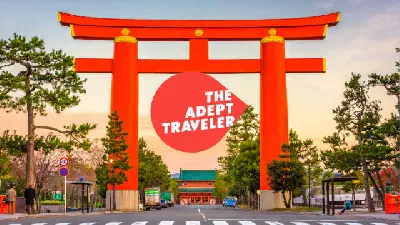Kyrgystan
Embark on a journey to Kyrgyzstan, a land where the majestic peaks of the Tien Shan mountains kiss the sky, and endless stretches of lush, green valleys beckon you to explore their beauty. As you travel to Kyrgyzstan, let the tranquil sounds of crystal-clear mountain streams wash over you, while the fragrant aroma of traditional Kyrgyz kumis—a fermented drink made from mare's milk—infuses the air with a sense of time-honored tradition. Feel the pulse of ancient nomadic culture as you discover vibrant bazaars overflowing with colorful textiles and tantalizing spices. Taste the hearty flavors of beshbarmak, a savory dish of boiled meat and noodles, served in yurt camps that dot the stunning alpine landscapes. This land of enchanting contrasts and warm-hearted hospitality invites you to step off the beaten path, offering an authentic travel adventure that promises to reveal Kyrgyzstan in all its captivating splendor.
Kyrgystan Travel Season
When considering travel to Kyrgyzstan, the ideal season plays a significant role in shaping the experience. The best period to explore the country is during the late spring to early autumn months, specifically from May to September. During this time, Kyrgyzstan exhibits its most favorable weather, with warm temperatures and clear skies, especially from June to August. Travelers will find lush green valleys, snow-capped mountain ranges, and picturesque landscapes that are often deemed the crown jewels of Central Asia.
Peak Season
June to August marks the peak season for travel to Kyrgyzstan. Visitors flock to the country during these months, particularly for outdoor activities such as hiking and trekking in the iconic Tien Shan mountains. Lake Issyk-Kul, one of the world's largest and deepest lakes, is also a popular destination during this period. The pleasant climate facilitates access to this natural wonder, where tourists can enjoy water sports or simply relax on the scenic beaches. Due to the influx of tourist activities, it's wise to book accommodations well in advance to avoid missing out on preferred lodgings.
Ideal Times to Avoid Crowds
For those seeking a more peaceful experience, traveling during May and September provides an excellent opportunity. In May, the landscape begins to come alive, with wildflowers blooming and snow melting off the peaks, perfect for photography enthusiasts. Additionally, September boasts favorable weather with fewer tourists, as schools resume and the crowds thin out after summer. These shoulder months offer substantial savings on travel costs and accommodations. As the temperatures cool slightly, the scenery remains captivating, and hikes can be enjoyed without the summer heat.
Winter Travel and Off-Peak Perks
Travel to Kyrgyzstan in the winter months of December to February reveals a different kind of beauty. The country transforms into a winter wonderland, with snow blanketing the mountains and valleys. Winter sports enthusiasts will find the ski resorts around Karakol a hidden gem, offering world-class skiing and snowboarding without the crowds associated with more famous ski destinations. Visiting during this time also provides unique cultural insights, with local celebrations such as Nooruz in March, marking the Persian New Year with festivities that include music, dance, and traditional cuisine.
Local Events and Holidays
The travel landscape in Kyrgyzstan is also punctuated by a rich tapestry of local events and holidays that add cultural depth to any visit. The World Nomad Games, typically held in September, showcase traditional nomadic sports and games, offering a spectacular cultural immersion. The annual Bishkek Jazz Festival, usually in April, brings lively performances to the capital city and attracts international musicians. Attending these events provides a unique window into Kyrgyz hospitality and tradition, enriching the journey with unforgettable memories.
Exploring travel in Kyrgyzstan across different seasons provides a kaleidoscope of experiences, from tranquil spring hikes to vibrant summer lakeside retreats and serene winter sports. Each season presents distinct attractions, ensuring that whether it's cultural engagement, adventure sports, or simply absorbing the natural beauty, there is something to captivate every traveler. Diverse and breathtaking, Kyrgystan is a destination that promises to linger in the memory long after the journey ends.
The Weather and Seasons in Kyrgystan
Kyrgyzstan, a landlocked country in Central Asia, offers a diverse climate that can be a delightful experience for travelers throughout the year. This nation is characterized by its mountainous terrain, which significantly affects the weather patterns. The climate varies from dry continental to polar in the highest mountains, with each region and season offering distinct experiences that can attract different types of travelers to Kyrgyzstan.
Winter (December to February)
Travel to Kyrgyzstan during the winter months promises a true winter wonderland, especially for those interested in skiing and snowboarding. The temperatures can drop significantly, ranging from 21°F to 30°F (-6°C to -1°C) in the lowlands, while mountainous regions experience much colder conditions. Expect snowfall, particularly in elevated areas where the snow depth can be quite substantial. Humidity is relatively low, and the dry, powdery snow creates ideal conditions for winter sports enthusiasts in places like Karakol and Chon-Kemin Valley.
Spring (March to May)
Spring is a beautiful time to travel to Kyrgyzstan as the country begins to thaw. During this season, temperatures gradually rise, starting at an average of 36°F (2°C) in March and reaching about 64°F (18°C) in May. Rainfall is more frequent, leading to lush green landscapes that beckon hikers and nature lovers to explore. The increasing warmth and longer daylight hours provide an excellent opportunity for travelers to explore Kyrgyzstan's diverse flora, particularly as wildflowers start to bloom. The central and southern regions may have more rain compared to the northern parts, but the overall humidity remains moderate.
Summer (June to August)
Summer in Kyrgyzstan presents the most favorable weather conditions for travel, especially for trekking and camping adventures in the famous Tian Shan mountains. Temperatures during July, the warmest month, hover around 85°F (29°C) in the lowlands, cooling down significantly in higher altitudes. Precipitation is relatively low, providing mostly dry conditions ideal for outdoor activities. If you travel to Kyrgyzstan during this time, expect vibrant festivals and cultural events, such as the World Nomad Games, which celebrate the country's rich nomadic heritage. This is also the time to venture into remote mountain valleys like Ala-Archa and Song Kol Lake for immersive experiences with local nomadic families.
Autumn (September to November)
Autumn offers a picturesque transformation, with golden hues dominating the Kyrgyzstan landscape. As temperatures decline from around 70°F (21°C) in early September to a chilly 41°F (5°C) by November, the air becomes crisp, making it suitable for hiking and exploring the naturally stunning vistas without the summer crowds. Rainfall decreases, and clear, sunny days prevail, providing spectacular views over Issyk-Kul Lake and other popular travel destinations. This season is also a great time to taste traditional Kyrgyz cuisine, as it's the harvest time for fruits and nuts.
Travel to Kyrgyzstan is always an adventure, regardless of the season, as each one offers something unique. The best time to visit largely depends on the type of activities you're interested in. Whether you're keen on hitting the slopes, hiking through untouched landscapes, or immersing yourself in the local culture through events and festivals, Kyrgyzstan's ever-changing climates have something to offer every traveler.
Accepted Payment Methods and Other Payment Information in Kyrgystan
When planning a trip to Kyrgyzstan, understanding the payment options available is crucial for a seamless travel experience. The local currency is the Kyrgyzstani som (KGS), and it's advisable for travelers to familiarize themselves with its denominations and exchange rates before embarking on their journey. Visitors will find currency exchange services widely available in major cities and airports, making it convenient to obtain KGS upon arrival.
For those traveling to Kyrgyzstan, it's worth noting that credit and debit card usage is predominantly accepted in urban areas. Visa and MasterCard are the most commonly accepted payment methods, providing travelers with a degree of flexibility. However, American Express and Discover cards are less frequently recognized, and travelers might encounter limitations when attempting to use them at smaller establishments or outside major business centers.
While traveling through Kyrgyzstan, individuals may notice that cash remains a favored payment method, especially in rural areas and at local markets. It's recommended to carry enough cash for small purchases and tips. ATMs are readily accessible in cities like Bishkek and Osh, where travelers can withdraw local currency using Visa and MasterCard. Nevertheless, technical issues or outages are not uncommon, so it's wise to have alternative payment options on hand.
For those traveling to Kyrgyzstan, understanding local customs, such as tipping, can enhance cultural appreciation. Though tipping is not obligatory, it is appreciated in restaurants and for services where exceptional service has been provided. A tip of 5-10% of the total bill is generally considered courteous, and rounding up the fare for taxi drivers is also customary.
Other useful travel information for those exploring Kyrgyzstan includes having a reliable internet connection to access banking apps and travel resources. Mobile networks in Kyrgyzstan are reasonably developed in urban areas, facilitating online payments and other digital transactions. Nonetheless, it's prudent for travelers to have a backup plan should connectivity issues arise in more remote locations.
Why You Should Travel to Kyrgystan
Kyrgystan is a hidden gem in Central Asia that offers travelers a tapestry of rich cultural encounters, breathtaking natural landscapes, and thrilling outdoor adventures. Travel to Kyrgystan and immerse yourself in a destination that's both captivating and authentic.
Epic Landscapes and Breathtaking Mountain Vistas
Travel to Kyrgystan and you will be welcomed by majestic landscapes dominated by the Tien Shan mountains. From verdant valleys to towering peaks, Kyrgystan presents an awe-inspiring panorama that’s perfect for trekkers and nature enthusiasts. Whether it's the renowned Ala-Archa National Park or the dramatic views from the peak of Lenin, the country’s varied topography is a dream for those who seek unspoiled natural beauty.
Rich Nomadic Culture and History
Kyrgystan is steeped in a history shaped by generations of nomadic tribes. Travelers can explore this heritage through various cultural experiences, including staying in traditional yurts and attending vibrant local festivals. The country’s commitment to preserving its nomadic customs provides visitors with a rare insight into ancient lifestyles that have been passed down through centuries.
Unique Culinary Experiences
Culinary travel to Kyrgystan introduces visitors to a fusion of flavors influenced by its diverse ethnic groups. From savoring succulent lamb dishes to enjoying the national dish of beshbarmak, the local cuisine offers a rich and satisfying gastronomic adventure. The vibrant bazaars such as Osh Bazaar in Bishkek present an opportunity to sample regional specialties and fresh produce.
Warm and Hospitable People
One of the most enchanting aspects of travel to Kyrgystan is the warmth of its people. Visitors are often touched by the genuine hospitality and friendliness of locals, who welcome travelers into their homes and lives. This spirit of hospitality enriches every interaction and makes traveling in Kyrgystan a profoundly personal and memorable journey.
Beautiful and Diverse National Parks
Kyrgystan’s national parks boast an array of ecosystems and opportunities for outdoor activities. From hiking through the stunning landscapes of the Sary-Chelek Biosphere Reserve to observing rare wildlife in the Naryn State Reserve, these parks are a treasure trove for nature lovers seeking adventure and serenity in equal measure.
Adventure Sports and Outdoor Activities
For those with a penchant for adrenaline, travel to Kyrgystan offers an array of adventurous pursuits. The country's rugged terrain is ideal for activities such as trekking, horse riding, rock climbing, and white-water rafting. Winter sports enthusiasts will also find ample opportunities for skiing and snowboarding in the inviting slopes of Karakol.
Stunning Lakes and Water Bodies
Kyrgystan is home to some of the most beautiful lakes in Central Asia. Stand in awe at the mesmerizing blue of Issyk-Kul, the world’s second-largest alpine lake, surrounded by snow-capped mountains. The remote beauty of Son-Kul offers an idyllic getaway for travelers seeking tranquility away from the bustle of urban life.
Vibrant and Colorful Festivals
Witness the country's traditional celebrations and vibrant festivities by aligning your travel to Kyrgystan with its cultural calendar. Festivals like Nooruz and the World Nomad Games offer insights into Kyrgyz traditions, where you can participate in folk dances, music, and sports that showcase the nation's rich cultural heritage.
Off the Beaten Path Experience
Unlike more commercial travel destinations, Kyrgystan remains relatively untouched by mass tourism, providing an authentic experience far from the beaten path. This allows travelers to immerse themselves in the local way of life, appreciate the unspoiled beauty of the landscapes, and explore hidden gems that are free from the usual tourist crowds.
Architectural Gems and Soviet-Era Legacy
For those interested in history and architecture, Kyrgystan offers a unique blend of influences, from Muslim mausoleums to Soviet-era buildings. The Ala-Too Square in Bishkek exemplifies Soviet monumental architecture, while places like the Burana Tower highlight the rich Silk Road heritage. Exploring these sites provides a fascinating glimpse into the past and present of this diverse nation.
The History of Kyrgystan
Kyrgyzstan, a country located in Central Asia, boasts a fascinating tapestry of history that has long intrigued history enthusiasts and adventurers alike. When you travel to Kyrgyzstan, you embark on a journey through a land that has been the crossroads of various cultures and empires. Kyrgyzstan's history is a testament to its strategic importance, serving as a crucial stop along the ancient Silk Road, which facilitated trade and the exchange of ideas between China and the Mediterranean. This historical significance is palpable as you wander through the sites that once welcomed merchants and travelers from distant lands.
Traveling to Kyrgyzstan allows history aficionados to delve into the remnants of powerful empires and nomadic civilizations. The ancient city of Osh, often considered the "capital of the south," is home to the Suleiman Mountain, a UNESCO World Heritage Site with petroglyphs that narrate stories of ancient spiritual and cultural practices. Similarly, the Tash Rabat caravanserai, nestled in the mountains, offers a glimpse into the life of medieval traders who sought refuge in its sturdy stone walls. These landmarks are not only remnants of the past but also windows into the complex historical tapestry that has shaped modern Kyrgyzstan’s identity.
The culture and historical heritage of Kyrgyzstan are also deeply rooted in its nomadic traditions, which live on in the country's festivals and practices. When you travel to Kyrgyzstan, you have the chance to experience the World Nomad Games, an event that celebrates the nomadic spirit with traditional sports, arts, and music. The game showcases Kyrgyzstan's ability to blend its robust historical past with modern cultural expressions. Furthermore, yurt stays in regions like Song-Kol Lake offer a unique perspective on the traditional Kyrgyz lifestyle, allowing travelers a firsthand experience of the nomadic way of life.
Kyrgyzstan’s modern history, particularly its journey to independence from the Soviet Union in 1991, has also been transformative, shaping the cultural and political landscape of the nation. The vibrant capital city, Bishkek, embodies this transformation with its Soviet-era architecture juxtaposed against the backdrop of snow-capped mountains. Memorials, museums, and theaters in Bishkek narrate the story of Kyrgyzstan's quest for identity and sovereignty. Visiting these sites allows travelers to appreciate the resilience and dynamism that have brought Kyrgyzstan to its current form, making it a captivating destination for those who seek to understand the interplay of ancient and modern histories.
The Culture of Kyrgystan
Kyrgyzstan, a hidden gem in Central Asia, is a treasure trove of rich and vibrant culture, offering a unique experience for those looking to travel to Kyrgyzstan and immerse themselves in its distinctive way of life. The people of Kyrgyzstan are renowned for their hospitality and warmth, embodying traditions that have been passed down through generations. These customs, deeply rooted in nomadic heritage, continue to play a significant role in daily life and are witnessed in the hospitality that travelers to Kyrgyzstan frequently encounter, where guests are often welcomed with open arms and invited to partake in local feasts.
One of the most captivating aspects of Kyrgyz culture is its festivals, which provide an authentic glimpse into the heart and soul of the nation. The World Nomad Games, for instance, represent a celebration of nomadic culture, featuring traditional sports, music, and dance. Visitors travel to Kyrgyzstan specifically to witness this global event, where participants from around the world compete in games that echo the daily lives of ancient nomads. The festival of Nowruz, marking the arrival of spring, is another important celebration, showcasing vibrant performances, traditional costumes, and hearty food, making it a compelling reason for travelers to experience Kyrgyzstan.
The daily customs of Kyrgyzstan further illustrate the country's intriguing cultural fabric. For instance, the importance of yurt-living and the symbolic nature of the felt tents reflect the enduring spirit of nomadic life, with many families maintaining yurts as part of their heritage. This tradition offers visitors a unique opportunity to experience authentic nomadic life during their travel to Kyrgyzstan. The practice of drinking kumis, a fermented mare’s milk, is a staple of Kyrgyz life and provides a cultural experience that invites travelers to engage directly with local traditions, sampling flavors unique to the region.
Art, music, and dance play pivotal roles in Kyrgyz cultural expression, making Kyrgyzstan a fascinating destination for culture enthusiasts. Traditional art forms are preserved through intricate textile work and handicrafts such as shyrdaks (felt rugs), which are both functional and display the artistic prowess of Kyrgyz craftspeople. Music and dance, emblematic of Kyrgyz identity, are performed during communal gatherings and festivals, with the komuz, a traditional stringed instrument, resonating as the heart of Kyrgyz musical tradition. These cultural expressions are part of the national identity, with efforts underway to preserve them for future generations, offering travelers to Kyrgyzstan a deep dive into a rich tapestry of art and history that is distinctly Kyrgyz.
The Culinary Experience of Kyrgystan
When travelers journey to Kyrgyzstan, they are met with a captivating tapestry of flavors and culinary traditions that beautifully reflect the nation’s rich cultural inheritance. Kyrgyzstan’s cuisine is a unique fusion that incorporates nomadic influences, along with a touch from neighboring cultures. The result is a culinary experience that is both heartwarming and adventurous. Kyrgyz dishes often incorporate meat as a central ingredient, predominantly lamb, beef, and horsemeat, reflecting the pastoral lifestyle of the Kyrgyz people. However, the abundance of seasonal fruits and vegetables adds a fresh dimension to the hearty fare, ensuring a balanced and flavorful dining experience.
One of the must-try dishes for anyone embarking on a journey to Kyrgyzstan is Beshbarmak, which translates to "five fingers" owing to the tradition of eating it by hand. This national dish features noodles topped with tender cuts of boiled meat and accompanied by an aromatic onion broth. Plov is another delightful staple, a rice-based dish combined with succulent pieces of mutton, carrots, and spices, that showcases the region's culinary finesse. For a taste of street food, one shouldn't miss Samsa, crispy pastry parcels filled with meat or vegetables, and Manty, steaming dumplings that burst with flavor. Each dish tells a story of Kyrgyzstan’s history and the melding of its vibrant cultures, offering travelers a taste of tradition on every plate.
The beverage scene in Kyrgyzstan is as intriguing as its food, with several unique offerings that redefine the beverage experience for travelers. Kumis, a traditional fermented drink made from mare's milk, is a historical beverage that embodies the nomadic heritage of the region. It offers a distinct flavor that is both tangy and slightly alcoholic, providing a refreshing break from conventional drinks. For those with a preference for more familiar beverages, Kyrgyzstan also offers locally brewed beers and a selection of imported spirits to cater to diverse palates. Tea holds a special place in Kyrgyz hospitality, with a variety of black and green teas served throughout the day as a gesture of welcoming warmth.
Dining in Kyrgyzstan provides a treasure trove of experiences, from vibrant food markets buzzing with local vendors to cozy yurt-based restaurants offering an authentic and intimate meal setting. In the capital, Bishkek, travelers can explore a modern take on traditional cuisine in various fine dining establishments. Food festivals are a delightful feature of the culinary landscape, often showcasing regional specialties and seasonal produce that reflect the changing harvests. These festivals are a testament to the community spirit and are ideal for those looking to delve deeper into Kyrgyzstan’s food culture. While the cuisine is generally meat-focused, increasingly, vegan and vegetarian options are becoming available, particularly in urban centers, ensuring that all travelers can partake in Kyrgyzstan’s culinary delights.
What to See and Do in Kyrgystan
Travel to Kyrgyzstan immerses you in a world filled with stunning landscapes, historical treasures, and vibrant culture. Kyrgyzstan is more than just a travel destination; it's an experience that captivates the senses and enriches the soul. From the majestic mountains to the warm hospitality of its people, Kyrgyzstan offers a plethora of activities and sights for every type of traveler.
Embark on a Trekking Adventure in the Tien Shan Mountains
For those with a spirit of adventure, the Tien Shan Mountains offer an unforgettable trekking experience. Known as the "Celestial Mountains," this range is characterized by dramatic peaks, pristine valleys, and crystal-clear lakes. Whether you're a seasoned hiker or a beginner, you'll find trails that lead you through some of the country's most breathtaking scenery. As you traverse through these landscapes, keep an eye out for diverse wildlife and the unique flora of the region. This is a haven for nature lovers and a must-do when traveling to Kyrgyzstan.
Explore the Historical Significance of the Burana Tower
Just outside of Bishkek lies the Burana Tower, a striking remnant of the ancient Silk Road. This historical minaret dates back to the 9th century and provides insight into the region's rich past. Visitors can climb to the top of the tower for panoramic views of the surrounding Chuy Valley. Exploring the archaeological site and the small museum nearby offers a glimpse into the area's history, making it a worthwhile stop for history buffs and families alike.
Experience the Magic of Lake Issyk-Kul
As the second-largest saline lake in the world, Issyk-Kul is a stunning natural wonder that should not be missed. Nestled amidst the towering mountains, Lake Issyk-Kul offers a range of activities, from swimming and sunbathing in its warm, cobalt waters to exploring the nearby cultural sites and quaint villages. This is a perfect spot for families seeking relaxation or adventure seekers looking for water sports. The alpine scenery and local hospitality create a serene and enriching environment for all travelers.
Delve into the Nomadic Culture at Song-Kul Lake
Set in the remote mountains of Kyrgyzstan, Song-Kul Lake is an ideal place to immerse yourself in the traditional nomadic lifestyle. Seasonally occupied by shepherds and their livestock, this high-altitude lake is surrounded by lush pastures and yurt camps. Spending a night in a yurt allows travelers to engage with the local nomadic culture, try traditional foods, and experience the vast starlit sky. For those interested in cultural travel, Song-Kul is a gateway to the authentic life of Kyrgyzstan's nomads.
Journey Through the Historic City of Osh
Travel to Kyrgyzstan would be incomplete without visiting Osh, one of the oldest cities in Central Asia. With over 3,000 years of rich history, Osh is a vibrant city with a bustling market, diverse culture, and welcoming atmosphere. The Suleiman Too Mountain dominates the skyline and is a significant pilgrimage site. Climbing to the top offers spectacular views of the city and the opportunity to visit the small museum dedicated to its history and spiritual significance. Osh invites solo travelers looking for cultural immersion and history enthusiasts alike.
Venture into the Fergana Valley's Rich Cultural Heritage
The Fergana Valley is a cultural gem hidden within Kyrgyzstan, home to unique traditions and crafts. Known for its fertile lands, this region is perfect for travelers wanting to explore the vibrant silk and handicraft industries. Visitors can engage with local artisans, witnessing the intricate process of silk production and the creation of beautiful ceramics. Families and curious travelers can appreciate the artistry and history embedded within the valley's daily life.
Discover the Wild Beauty of Ala Archa National Park
Just a short drive from Bishkek lies the stunning landscapes of Ala Archa National Park. Ideal for day trips or longer camping excursions, the park is known for its verdant forests, alpine meadows, and snow-capped peaks. Hiking enthusiasts will find numerous trails ranging from easy walks to challenging climbs, all offering a chance to connect with nature and enjoy the tranquility of this preserved area. Wildlife such as ibex and marmots can often be spotted, making it an exciting destination for nature lovers and photographers traveling to Kyrgyzstan.
Attend the World Nomad Games
For a travel experience unique to Kyrgyzstan, the World Nomad Games present a modern celebration of traditional nomadic sports and culture. Held intermittently near Issyk-Kul, this event gathers athletes and spectators from around the world to showcase and celebrate the nomadic heritage of Central Asia. From horseback games to traditional music and dance, the games are a vibrant display of cultural pride and unity. This is perfect for travelers looking to experience Kyrgyzstan's cultural richness and community spirit.
Wander Through the Bustling Osh Bazaar in Bishkek
The Osh Bazaar in Bishkek is a sensory adventure for travelers seeking to taste and feel the vibrant pulse of Kyrgyzstan. A walk through this bustling market offers an authentic taste of daily life, with vendors selling everything from fresh produce and textiles to traditional crafts. The vibrant colors, tempting aromas, and lively sounds create an unmissable travel experience, ideal for solo travelers and families wanting to explore Kyrgyzstan's cultural and culinary diversity.
Relax in the Alpine Serenity of Karakol
Karakol, located near Lake Issyk-Kul, offers a mix of outdoor adventure and cultural exploration. Known for its welcoming atmosphere and rich history, Karakol serves as a jumping-off point for excursions into the surrounding mountains or hot springs. The city itself boasts fascinating historical landmarks, such as the Holy Trinity Russian Orthodox Church. Adventure seekers can explore trekking routes, while families can enjoy the laid-back charm of the city. Karakol is a versatile destination, appealing to a wide range of travelers venturing into Kyrgyzstan.
Tips & Tricks for Traveling in Kyrgystan
Understand Local Customs and Traditions
Travel to Kyrgystan is an opportunity to immerse yourself in the rich tapestry of Central Asian culture. Understanding local customs can greatly enhance your travel experience. In Kyrgystan, hospitality is a deeply rooted value, so it’s common to be invited into homes for a meal. Be sure to remove your shoes before entering a home as a sign of respect. When meeting people, a firm handshake is customary among men, while a simple nod will suffice between men and women. Learning a few basic phrases in Kyrgyz, such as “Salam” for hello and “Rakhmat” for thank you, can go a long way in building goodwill and rapport with locals.
Navigate Transportation Like a Local
Traveling within Kyrgystan can be an adventure itself, especially when using local transportation options. Marshrutkas—minibuses—are an affordable and popular way to get around within cities and between neighboring towns. While they might be crowded, they offer an authentic local experience. For longer distances, shared taxis or buses are a viable option. Always negotiate the fare beforehand as pricing can be flexible. If you're considering renting a car, be aware that driving conditions in mountainous regions can be challenging, so ensure you are comfortable with manual transmission if you plan to travel to remote areas.
Plan Your Budget Wisely
Kyrgystan is known for being a budget-friendly travel destination. However, planning your expenses can ensure you make the most of your travel without overspending. Use Kyrgyz som for all your transactions, as using foreign currency will likely incur poor exchange rates. Eat at local bazaar stalls and family-run cafes for authentic Kyrgyz dishes like Beshbarmak at reasonable prices. Accommodation varies from affordable guesthouses and yurts to more luxurious options. If you're planning excursions, book with local operators in Kyrgystan for more competitive prices.
Time Your Visit to Avoid Crowds
The timing of your visit can significantly affect your travel experience in Kyrgystan. July and August are peak tourist months due to the pleasant weather, but also when you'll encounter the most crowds. If you prefer a quieter atmosphere, consider traveling in late spring or early autumn. These shoulder seasons offer beautifully mild climate conditions and fewer tourists at popular sites like Issyk-Kul Lake or Ala-Archa National Park, allowing for a more intimate appreciation of Kyrgystan's breathtaking landscapes.
Embrace the Yurt Stay Experience
One of the unique aspects of travel to Kyrgystan is the opportunity to stay in traditional yurts. Yurts, or “boz-uy” in Kyrgyz, offer a glimpse into the nomadic lifestyle that is still pivotal in Kyrgyz culture. Many regions, particularly around Song-Kul Lake, offer yurt camps that allow travelers to enjoy breathtaking night skies and serene landscapes. Staying in a yurt is not just about accommodation; it’s about interacting with the families who run these camps and learning about their way of life. It can also be a great base for activities like horse trekking or fishing.
Capture Breathtaking Photography
For photographers, Kyrgystan offers a plethora of opportunities to capture stunning landscapes and vibrant cultures. Travel to Burana Tower at sunrise for ethereal shots of this historical monument surrounded by the Tian Shan mountains. The vibrant colors of the Osh Bazaar in Bishkek are a feast for the lens. If capturing the daily life of nomadic herders is on your list, Song-Kul Lake offers picturesque scenes of yurts against the vast steppe. Bring a polarizing filter to enhance the deep blues of the Kyrgyz lakes and skies.
Connect with Local Guides
Hiring a local guide can significantly enrich your travel experience in Kyrgystan. Guides often have an in-depth understanding of the country's history, geography, and culture, and can offer insights that are not available in guidebooks. They can help you navigate the language barrier and gain a deeper appreciation for sites like Tashkent's Silk Road trading posts or the famed petroglyphs in the Saimaluu Tash region. A guide can also recommend off-the-beaten-path destinations and help arrange logistics, ensuring a smoother travel experience.
Be Prepared for Weather Changes
The climate in Kyrgystan can vary significantly depending on altitude and region, so it’s important to pack accordingly. Bring layers to accommodate the typically warm days and cooler nights, especially in mountainous areas. Rain is possible, particularly in spring and autumn, so a lightweight, waterproof jacket is advisable. If you're planning a trek or a mountain excursion, ensure you have sturdy hiking boots and proper gear to face sudden weather changes.
Participate in Festivals and Events
Immerse yourself in Kyrgyz culture by timing your visit to coincide with local festivals and events. The World Nomad Games, held biennially, showcase traditional Kyrgyz sports, culture, and music and are a spectacle of pageantry and athleticism. Nooruz, the Persian New Year celebrated on March 21, offers a chance to witness traditional dances, music, and local dishes. These events are a perfect way to experience the vibrant cultural heritage of Kyrgystan and mingle with locals in a festive atmosphere.
Respect Wildlife and Nature
If your travel agenda to Kyrgystan includes exploring its vast natural landscapes, it's essential to show respect for wildlife and nature. Be a responsible traveler by sticking to designated paths and trails to preserve the flora and fauna. Always carry out what you bring in to maintain the pristine conditions of places like the Ala-Archa Nature Park or the wild expanses of the Tien Shan Mountains. Keep a safe distance from wildlife and refrain from feeding animals, ensuring their natural behaviors are not disrupted for future generations to enjoy.
What To Know Before You Go to Kyrgystan
When planning to travel to Kyrgyzstan, being informed about the entry requirements is essential. Citizens from over 60 countries, including the EU, USA, and Canada, can visit Kyrgyzstan visa-free for up to 60 days. It's crucial to check whether your nationality requires a visa before you travel. If you're planning to stay longer or engage in activities like work or study, you will need to apply for an appropriate visa in advance. Vaccination requirements generally depend on your home country, but it's advisable to have routine vaccinations updated, such as measles-mumps-rubella (MMR) and diphtheria-tetanus-polio vaccination, as well as hepatitis A and B.
Local Customs and Etiquette
Understanding local customs will enrich your travel experience in Kyrgyzstan. The Kyrgyz people value hospitality immensely, often expressed in traditional meals accompanied by tea. When visiting someone's home, it's courteous to bring a small gift such as sweets or fruit. Dress modestly and remove shoes when entering homes. Since the majority of the population is Muslim, respecting religious practices, such as Ramadan fasting periods and prayer times, is appreciated.
Transportation Options
Kyrgyzstan offers various transportation options for travelers. Buses and shared taxis are affordable for getting around cities and between towns. In major cities like Bishkek, taxis are readily available and inexpensive. It’s best to agree on a fare beforehand or ensure the meter is running. For those looking to explore the rugged terrain of Kyrgyzstan, renting a car or hiring a local driver could provide more comfort and flexibility.
Tipping Culture
Tipping in Kyrgyzstan is not obligatory but appreciated. In restaurants, it’s common to leave a tip of around 10% if service is satisfactory. For taxi drivers, rounding up the fare is often sufficient. If you receive exceptional service, feel free to tip more generously.
Health Precautions
Travelers should remain cautious about health precautions while visiting Kyrgyzstan. Apart from vaccinations, it's advisable to have travel insurance that covers medical evacuation due to the country's remote areas. Be mindful of food hygiene, especially concerning street food. Drinking bottled or boiled water is recommended to avoid waterborne illnesses.
Common Phrases and Communication Tips
The primary languages in Kyrgyzstan are Kyrgyz and Russian. Learning a few basic phrases can greatly enhance your travel experience and interactions with locals. Useful phrases include "Salam" (Hello), "Rahmat" (Thank you), and "Kandaisiz" (How are you?). English is not widely spoken, especially outside urban centers, so consider downloading a translation app or carrying a phrasebook. Engaging locals with a genuine attempt to speak their language is often warmly received.
Accessibility in Kyrgystan
Travel to Kyrgyzstan offers a unique blend of cultural heritage and stunning natural landscapes, but it poses specific challenges for travelers with disabilities. The infrastructure in Kyrgyzstan is evolving, with limited facilities for those who require physical accessibility. Many cities and rural areas are still working towards inclusivity, making it important for travelers to be aware of what to expect and plan accordingly.
Physical Accessibility
For travelers with limited mobility or those using wheelchairs, navigating Kyrgyzstan can be somewhat difficult. Many of the older buildings lack ramps or elevators, and sidewalks are often uneven, with limited curb cuts. However, there are emerging efforts, especially in urban centers like Bishkek, to improve accessibility. Some new buildings and public spaces offer ramps and accessible entrances, reflecting a growing awareness of the need for inclusive design.
Visual and Auditory Accommodations
The availability of visual and auditory accommodations in public spaces and attractions is still relatively rare in Kyrgyzstan. Public transportation, museums, and most attractions lack signage in Braille or audio assistance for the visually impaired. Likewise, services like sign language interpretation are not commonly available. Travelers with these needs should prepare in advance by contacting local service providers or travel agencies that might offer specialized support.
Accessible Public Transportation
Public transportation in Kyrgyzstan, including buses and taxis, generally does not cater well to travelers with disabilities. The majority of buses are not equipped with lower floors or ramps, while taxis rarely have adaptations for wheelchair users. It is advisable for travelers requiring specific accommodations to arrange private transportation where possible. Some travel agencies may be able to organize accessible vehicles or provide information on more adaptable options in urban areas.
Accommodations
When it comes to accommodation, options for fully accessible hotels are limited. Larger hotels in the capital of Bishkek may offer a few accessible rooms with grab bars and roll-in showers, but these are not standard. It's advisable to contact hotels directly ahead of your travel to Kyrgyzstan to confirm the availability of specific accommodations. For those planning to explore rural areas or smaller towns, finding accessible lodging may require more effort and advance planning.
Accessible Tourist Attractions
While many of Kyrgyzstan's major tourist attractions are not fully accessible, some steps have been taken to accommodate visitors with disabilities. For example, the Ala-Too Square in Bishkek has improved pathways for better wheelchair access. The country's stunning natural beauty, including its mountains and lakes, poses challenges given their rugged nature, but some tour operators offer tailored experience that cater to various needs, such as providing support staff or modified routes.
Traveling to Kyrgyzstan with accessibility needs requires careful planning and patience. While the country is making strides towards inclusivity, infrastructure improvements are ongoing. With proper preparation, travelers can enjoy the vibrant culture and breathtaking scenery that Kyrgyzstan offers while navigating the challenges along the way.
Health & Safety in Kyrgystan
When considering travel to Kyrgyzstan, it's essential to be aware of various safety concerns to ensure a smooth and secure journey. While the country offers stunning natural landscapes and vibrant culture, travelers should remain informed about potential risks.
Water Safety in Kyrgyzstan
One primary concern for those traveling to Kyrgyzstan is water safety. Tap water in many areas is not considered safe for drinking due to potential contamination. Travelers are advised to consume bottled or boiled water to avoid waterborne diseases. It’s also recommended to avoid ice in drinks and to ensure that food, particularly fruits and vegetables, is thoroughly cleaned with safe water.
Natural Disaster Risks
Kyrgyzstan is prone to natural disasters, primarily earthquakes and landslides, due to its mountainous terrain. Earthquake activity is relatively common, although significant earthquakes are rare. Travelers should familiarize themselves with safety protocols, such as identifying safe spots in buildings or open areas. During treks in rural and mountainous regions, the risk of landslides can pose a hazard, particularly during heavy rains, and caution should be taken when traveling in these areas.
Crime and Security
While Kyrgyzstan is generally safe, petty crime such as pickpocketing and theft can occur, especially in crowded places like markets or public transport. Travelers are advised to keep their belongings secure and be vigilant in busy areas. It’s also a good practice to avoid displaying valuable items like expensive jewelry or electronics in public. In general, being aware of your surroundings and using common sense can significantly reduce the risk of encountering crime while traveling in Kyrgyzstan.
Political and Social Unrest
Kyrgyzstan has experienced political instability in the past, with occasional protests or demonstrations, particularly in the capital, Bishkek. While these events are generally peaceful, they can sometimes turn volatile. Travelers should avoid large gatherings and demonstrations and stay informed about the local political climate by monitoring the news or consulting local contacts.
Health and Safety Precautions
Travelers to Kyrgyzstan should also be aware of health and safety precautions. Although no mandatory vaccinations are required, it’s advisable to be up to date on routine vaccines such as measles, mumps, rubella (MMR), and hepatitis. In certain areas, vaccinations for diseases like hepatitis A and B, typhoid, and rabies may be recommended. Access to healthcare, especially in rural areas, can be limited, and travelers are advised to carry a basic medical kit and any necessary medications. Having travel insurance that includes coverage for medical evacuation can provide added peace of mind.
By staying informed about these safety considerations, travelers can better prepare for their trip to Kyrgyzstan and enjoy the unique experiences the country has to offer.
Other Places You Might Like
Almaty, Kazakhstan - Travelers who enjoy the stunning landscapes and cultural richness of Kyrgystan will find a familiar allure in Almaty, Kazakhstan. This city offers an intriguing blend of nomadic heritage and modern vibrancy. Nestled between picturesque mountains and vast steppes, Almaty promises outdoor adventures very much akin to those found in Kyrgystan. Outdoor enthusiasts can trek in the nearby Ile-Alatau National Park or scale the magnificent peaks in Shymbulak. The city itself is also a cultural hub, rich with local markets, museums, and festivals that celebrate Central Asian traditions, drawing in those who appreciate the cultural tapestry of Kyrgystan.
Tashkent, Uzbekistan - For those who love the historic Silk Road influences evident in Kyrgystan, Tashkent should be on the itinerary. This city blends history with modern marvels, showcasing ancient architecture alongside contemporary cityscapes. Visitors can explore the Khast Imam complex, rooted deeply in Islamic heritage, much like the historic monuments scattered across Kyrgystan. Tashkent’s buzzing bazaars and culinary delights offer a sense of familiarity with Central Asian flavors, making it a fascinating travel extension for those who admire the traditions and history of the region.
Ulaanbaatar, Mongolia - Known for its nomadic culture and sweeping landscapes, Ulaanbaatar offers a mesmerizing parallel to the untamed beauty found in Kyrgystan. Mongolia's capital city serves as an ideal starting point for exploring the pristine, vast steppes and engaging with the nomadic lifestyle that's characteristic of both countries. The annual Naadam Festival brings to life ancient Mongolian sports and culture, resonating with the traditional festivals celebrated in Kyrgystan. The stark natural beauty surrounding Ulaanbaatar, combined with its rich cultural offerings, makes it an appealing travel destination for those who have cherished their journey across the mountains and valleys of Kyrgystan.
Bishkek, Kyrgyzstan - Travel to Kyrgystan often begins or ends in its vibrant capital, Bishkek. Although you're already in Kyrgystan, it deserves a mention for its unique charm that appeals to the soul. Nestled at the foot of the Tian Shan mountain range, Bishkek presents a special blend of Soviet architecture and flourishing green spaces. For those whose travels have already made them fall in love with Kyrgystan, Bishkek offers a perfect urban retreat while still being in close proximity to the rugged landscapes that define the Kyrgystan adventure.
Final Thoughts
Nestled in the heart of Central Asia, Kyrgyzstan is a hidden gem that beckons adventurous souls and culture enthusiasts alike. Whether you’re a seasoned explorer or a first-time traveler, Kyrgyzstan offers a unique tapestry of experiences that will leave you mesmerized. From its rugged mountains and crystal-clear alpine lakes to its vibrant nomadic culture and warm hospitality, traveling to Kyrgyzstan promises an unforgettable journey into one of the world's most enchanting landscapes.
Embarking on a travel to Kyrgyzstan is a journey through picturesque valleys, where trails once traveled by ancient Silk Road merchants tell stories of a bygone era. The stunning Tien Shan Mountains serve as a playground for outdoor enthusiasts, providing unparalleled opportunities for hiking, skiing, and horse trekking. As you travel through Kyrgyzstan, you will also be captivated by the traditional yurt camps that invite you to experience the authentic nomadic lifestyle, complete with tantalizing local cuisine and vibrant cultural festivities.
But Kyrgyzstan's charm is not limited to its natural beauty and cultural richness. The country's genuine hospitality is sure to warm your heart, as locals welcome you like family. Travel to Kyrgyzstan to discover a destination that is not only visually stunning but also deeply soul-stirring. Let the spectacular landscapes and authentic experiences enrich your travel memories and remind you of the world's endless wonders. With so much to explore and discover, Kyrgyzstan is a destination that should undeniably be at the top of your travel bucket list. Consider Kyrgyzstan for your next trip, and step into a world where adventure and culture blend seamlessly into an unforgettable journey.
Singapore: Celebrity Solstice Returns After Renovation

2028 World Cruise From Miami To Athens With Azamara

Global Guardian Flags Geopolitics as Top Travel Risk

Central Asia tours surge as visas get easier

G Adventures 18-to-Thirtysomethings Adds 38 New Trips

Globus Launches New 2025 Independent Tours in Asia

Unveiling Seabourn's Luxurious Global Expeditions for 2024-25

Regent Seven Seas Cruises Unveils New Grand Voyages for 2025 and 2026

Travel News: Global Entry, CDC Travel Advisory, and Qatar Airways

Best Times to Travel to Asia: Avoid Summer Crowds and Costs

